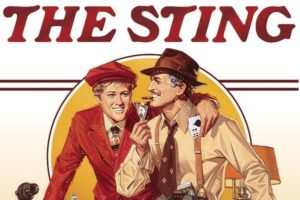We live in strange times. I can count of one hand the number of occasions I’ve ever seriously talked to anyone about a pandemic, in fact I’ve likely had more conversations about Pantene. Yet here we are, doused in 70% alcohol gel and now all finger wagging experts in the field.
Life on lockdown in a bundle of both good and bad with us performing a balancing act of isolation and contemplation during this difficult time. Hesitant though we are, we’re now all the more aware and appreciative of what we have and of what we may have taken for granted. And in looking to the future, we revisit memories from the past.
It can’t have been a month before the world was turned upside down, that my brothers and I accompanied by our characterful cousins had a break down the coast. It’s something of a family tradition really when we used to go with our Dad decades back. A break away where we leave life’s problems behind, stay in a cheap hotel reminiscent of something Del Boy might stumble upon on a Jolly Boys Outing, and hit the local horse racing track followed by the casino. My brothers, a decade older than me, have been into horse racing since I popped out of the womb so it’s always good to make memories at the racecourse.
Our local racecourse is in Great Yarmouth and I’ve lost count of the number of times we’ve been there over the years. Yarmouth has seen better days, but there’s something to be said for places that are a bit (or a lot) rough around the edges. The racecourse is the jewel in the Yarmouth crown if you will, the hub, and also exactly what you might expect. Exorbitant entry prices, chips and a pint, the Alan Partidge-like commentary of Derek Thompson (who also judges the ‘Ladies Day’ competition… with excessive enthusiasm!) and top class racing. Rituals that make up the day like watching the horses go around the paddock to spot the real contenders, and trying to find the best spot to watch a race, really do add to the day.
We’ve all had decent wins at Yarmouth races over the years, and sometimes on big priced horses too which is always a bonus. If you’ve done your homework and have answers to questions that certainly doesn’t hurt your win rate. My biggest ever win there though, was luck more than skill. An outsider in the final race of the day, the roulette equivalent of a lucky spin of the wheel. The bookmaker was in two mind about even taking the bet as a waltzed up with seconds to spare, but clearly thought it was free money courtesy of a horse had no hope. Of course when I was making my way back towards him minutes later to collect my winnings he may well have been reconsidering his stance. Cheered on by family, these are the memories that stay with you.
The racecourse has a tie-in with the local Grosvenor Casino, a very attractive venue, which was once frequented by royals. You can use your wildly priced racecourse entry ticket for a free bet on the roulette wheel, but more about that in part two…
 If you’ve ever been to Nevada, you’ll know that there’s nothing quite like seeing the bright lights and bustling crowds in Las Vegas. Home of box office busting sporting events and casinos as far as the eye can see, it’s the kid in a candy store gambling equivalent for those who like their entertainment faced paced and with an element of risk. Of course that’s all changed for now though, due to covid-19. While the lights may still shine bright, the crowds are absent and it’s a world on pause. A place once full of life, now replaced by an eerie and unfamiliar silence.
If you’ve ever been to Nevada, you’ll know that there’s nothing quite like seeing the bright lights and bustling crowds in Las Vegas. Home of box office busting sporting events and casinos as far as the eye can see, it’s the kid in a candy store gambling equivalent for those who like their entertainment faced paced and with an element of risk. Of course that’s all changed for now though, due to covid-19. While the lights may still shine bright, the crowds are absent and it’s a world on pause. A place once full of life, now replaced by an eerie and unfamiliar silence.
How long this will continue for is anyone’s guess, but Matt Maddox, the CEO of Wynn Resorts is calling for the Las Vegas Strip to begin reopening as early as May with certain restrictions in place. Mirroring a gradual return that will likely also be seen in other sectors, Maddox foresees measures such as reduced occupancy, increased testing and a requirement to wear masks put in place. He has his eye on mid to late May for this process to begin. This is no doubt music to President Trump’s ears as he’s more than eager to get the economy up and running again.
“I understand that if we incrementally reopen we might have to pull back if a spike in cases occurs that jeopardizes our health care system capacity. However, the only way to cross this river is one stone at a time, and we need to put our feet in the water before it is too late,” Maddox wrote.
Credit to Wynn Resorts as they’re currently still paying all part and full-time employees. A move that the CEO says is costing the company an eye watering $3,000,000 per day. In these unprecedented and unpredictable times, who knows when we’ll find ourselves returning to some semblance of normality where we feel safe in busy environments. I certainly welcome a time when we do though.
 Featuring an all-star cast, headed by Paul Newman, Robert Redford, Robert Shaw, ‘The Sting’ is a stylish, meticulously detailed crime drama film, released by Universal Pictures in 1973. Set in Depression-era Illinois, principally Chicago, ‘The Sting’ was directed by George Roy Hill,who had previously directed Newman and Redford in ‘Butch Cassidy and the Sundance Kid’ four years earlier.
Featuring an all-star cast, headed by Paul Newman, Robert Redford, Robert Shaw, ‘The Sting’ is a stylish, meticulously detailed crime drama film, released by Universal Pictures in 1973. Set in Depression-era Illinois, principally Chicago, ‘The Sting’ was directed by George Roy Hill,who had previously directed Newman and Redford in ‘Butch Cassidy and the Sundance Kid’ four years earlier.
Seeking to avenge the murder of his partner Luther Coleman (Robert Earl Jones), petty swindler Johnny Hooker (Redford) heads to Chicago to seek out fellow grifter Henry Gondorff (Newman). Together, they perpetrate an elaborate hoax – the ‘big con’ – with the intention of financially ruining
criminal overlord Doyle Lonnegan, whose henchmen were responsible for the death of Luther Coleman.
Resurrecting an obsolete scam, known as ‘The Wire’, and aided and abetted by a cast of characters, not least bogus tipster Kid Twist (Harold Gould), Gondorrf and Hooker create a fake betting parlour and convince Lonnegan to bet $500,000 on a horse called Lucky Dan to win. Just before the supposed ‘off’, Twist informs Lonnegan that Lucky Dan will finish second and, as he attempts to retrieve his money, FBI agents raid the betting parlour.
Agent Polk (Dana Elcar) – who, unbeknown to the audience, is part of the con – tells Hooker he can leave and Gondorff, apparently betrayed by his partner in crime, shoots Hooker in the back. Polk shoots Gondorff and, in the commotion, Agent Synder (Charles Durning), a real FBI agent who has been pursuing Hooker since early in the film, ushers Lonnegan from the building. Once the coast is clear, Hooker and Gondorff rise, unharmed and smiling, to their feet and riotous celebrations begin.
The iconic image of the casino chip exists throughout society. There are various designs and collectors and every chip has a story to tell; some hold significant value by virtue of their face value or collectability. With that in mind, let’s have an impromptu Q&A session of some of the casino and poker chip questions that may be of interest to casino goers.
How can you tell a real casino chip from a fake one?
Being that casino chips are so essential to the running of casinos, it’s of utmost importance that they remain on the premises, are not swiped from other patrons, and are genuine rather than counterfeit. Casinos have had decades to get a structure in place to ensure that nothing untoward happens. For starters chips vary in weight from casino to casino, so this is one telltale sign of their authenticity. Chips also often have distinctive logos, colours and marking which differentiate them from that of other establishments.
Beyond this there are also often markings on the chips that only show up under UV light. More modern day measures now rely on RFID tags embedded into the chips themselves (a chip within a chip – chipception!). Casinos also have advanced CCTV and facial recognition systems in place. These protect customers (should somebody try to swipe your chips!) but primarily the casino itself. Transactions are also kept track of in a forensic manner and so if something is off it will soon be recognised.
Why Do Casinos Use Chips Instead of Cash?
It’s a valid question to ask, as surely casinos want to remove as many obstacles to gambling as humanly possible. Gamblers aren’t always known for their patience though; they can be an impulsive bunch. The reasons are actually multi faceted. There is a security aspect to it, in line with the aforementioned measures put in place to ensure the legitimacy of chips. Where chips are stolen they can be cancelled via their RFID data, whereas if cool, hard cash was taken this wouldn’t be the case. The RFID tags also allow for mistakes to be tracked during play. On top of this it’s convenient to use chips in such a fast paced environment. Imagine roulette with endless piles of notes on the table. It would soon become unworkable.
A key factor though, is the psychological component to gambling. You see the same online; mentally it ‘feels’ very different to be handing over your money, in comparison to using casino chips or something that’s taking place in a virtual realm. Inhibitions find themselves on the back burner. The human mind is more familiar with the value of notes, but not so much with casino or poker chips. It’s mentally far easier to push $100 worth of chips onto red or black, rather than having to count it out first.
What’s the largest ever collection of casino chips?
If you can think of it, somebody in the world is undoubtedly a collector of it. The iconic appearance of, and tales behind casino chips make them prime collector material. Some of us may keep a chip or two from a memorable visit to Vegas for instance, whereas others go the whole hog and make collecting them a passion. To ascertain who has the most casino chips we need look no further than the Guinness Book of World Records. Until 2020 that the Largest collection of $1 casino chips and tokens was 802 individual pieces. The record was fittingly achieved in Las Vegas, Nevada on 22th June 2019, by Paul Schaffer. He’d been amassing his collection since 2004. The record fell on 4th October 2020 to Gregg Fisher with a collection of 818 $1 casino chips. Some casino chips can cost hundreds of dollars and so if you’re planning on taking Gregg’s record, you’ll need deep pockets.
